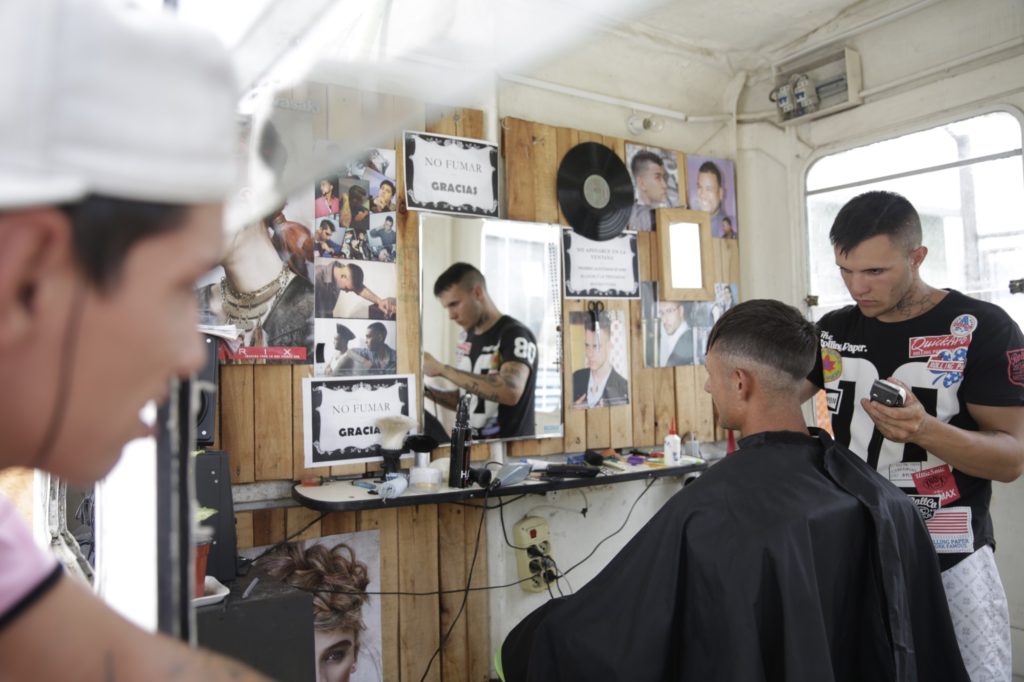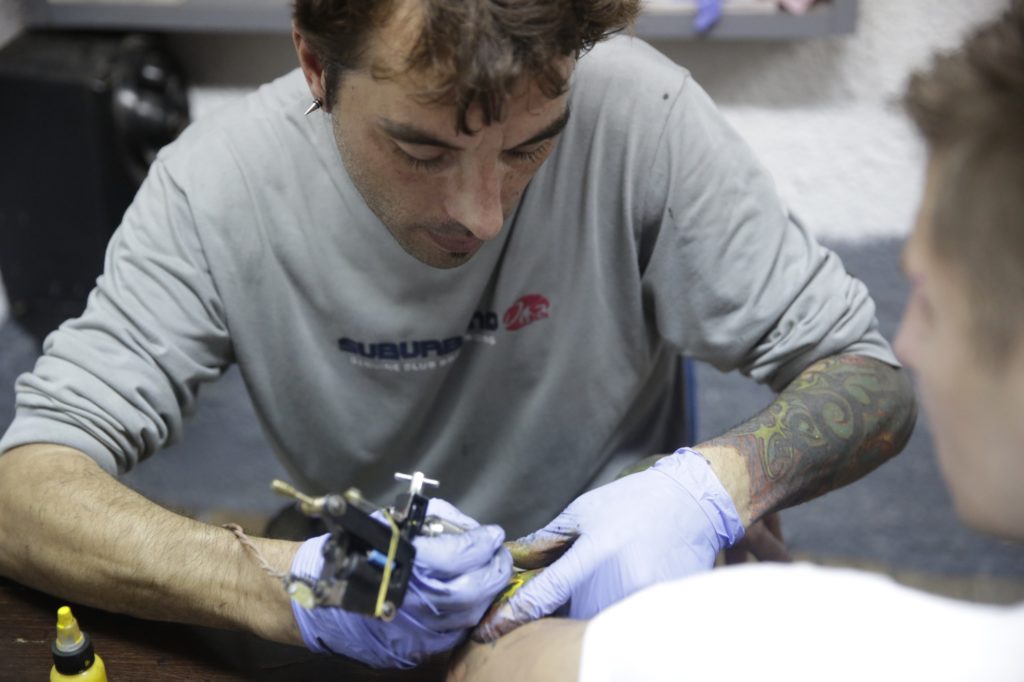 Every weekday morning, Cesar Campo wakes up, eats a quick breakfast and heads to work in a converted warehouse where he builds tables, chairs, bookcases and anything else that clients request.
Every weekday morning, Cesar Campo wakes up, eats a quick breakfast and heads to work in a converted warehouse where he builds tables, chairs, bookcases and anything else that clients request.
Close by, his neighbours make bricks, grow vegetables and run shops such as cafes, a bakery, a barber’s salon and a tattoo studio.
All the workers are inmates living at Punta de Rieles, a progressive “open” prison just outside the Uruguayan capital, Montevideo.
“We never imagined we would have something like this,” said Campo, 50, who has spent 23 years behind bars for bank robbery.
“It’s a model prison which offers opportunities you don’t find anywhere else.”
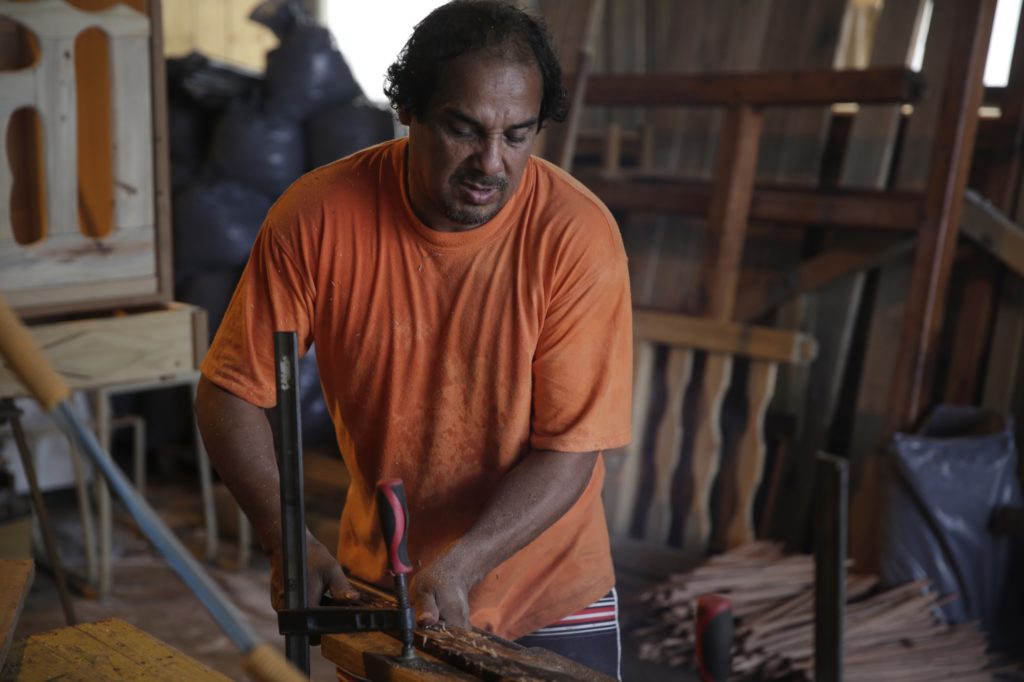
Cesar Campo in his workshop at Punta de Rieles. (Photo: Frederick Bernas)
With incidents of prison violence recently hitting the headlines around Latin America – particularly in Brazil where more than 100 people died in January alone in a series of riots – the liberal philosophy behind Punta de Rieles offers an alternative view of how correctional institutions can be operated.
Its director, Luis Parodi, is a former schoolteacher who believes that “if the context changes, the man changes” and who runs his prison based on three fundamental elements: work, education and culture.
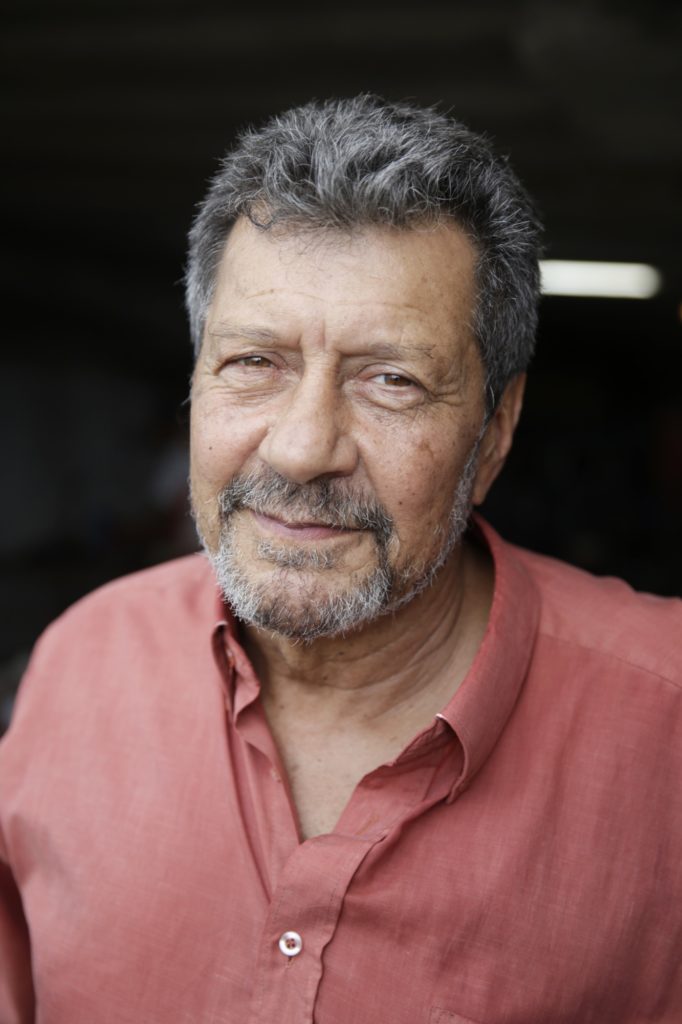
Prison director Luis Parodi. (Photo: Frederick Bernas)
“We want to provide the best daily life possible, so prisoners can sleep peacefully and do not feel humiliated, scared or fearful,” Mr Parodi told the BBC.
By creating a “village” which mimics the outside world as closely as conditions allow, he hopes to ease the rocky transition when prisoners return to freedom.
Many of the 630 inmates at Punta de Rieles are approaching the end of their sentences.
With the national re-offending rate estimated at around 50%, Mr Parodi often tells departing prisoners to “call me before you think about stealing something”, and gives out his personal phone number.
Uruguay’s prison population has more than doubled since 2000. Prisons are currently 9% over their capacity.
In this nation of 3.4 million inhabitants, 10,416 people were serving custodial sentences in 2016.
In 2009, a UN Special Rapporteur expressed concern about the country’s penitentiary system, describing “sub-human conditions” in which inmates at one prison were held “like animals in metal boxes” for nearly 24 hours per day.
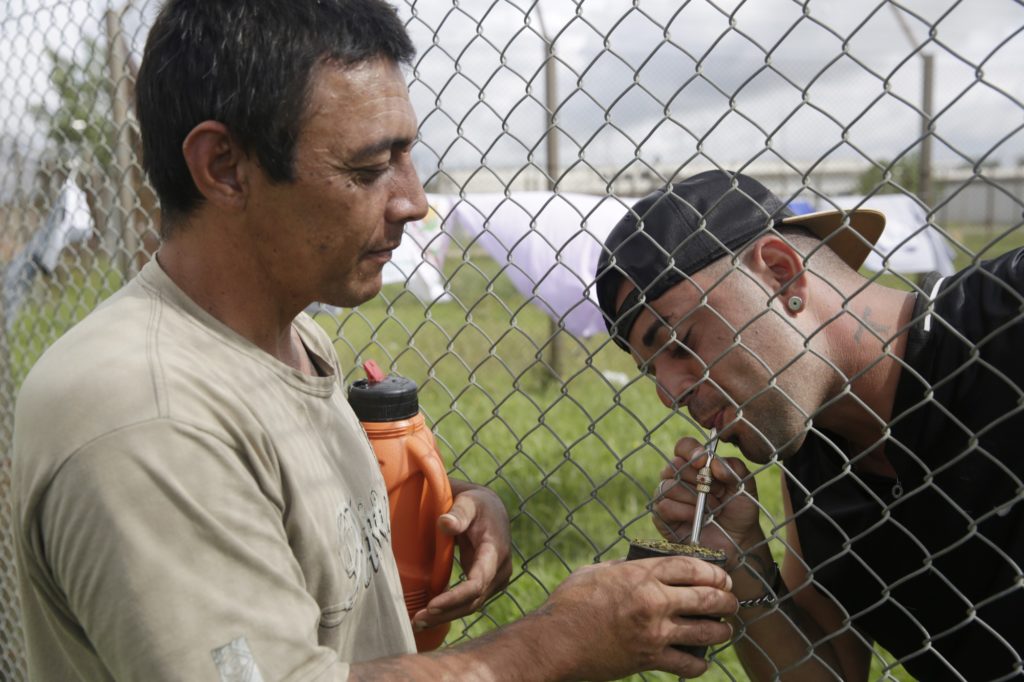
Prisoners share a traditional Uruguayan mate. (Photo: Frederick Bernas)
At Punta de Rieles, prisoners can circulate freely within the prison boundaries until 19:00.
Many use mobile phones to stay in touch with the outside world, and some are allowed tablets or computers.
Inside the cells, which are typically shared between four people, they are allowed to have televisions, games consoles, refrigerators and musical instruments.
Families can visit three times per week, and overnight stays have been allowed since 2015.
In many cases, family members assist inmates who run businesses which sell their wares outside, like Cesar Campo’s carpentry workshop.
Of 38 active “companies”, 35 were started by prisoners themselves, and another is run by several former inmates who still return to work at the prison.
All business owners pay a small tax, which is used to provide micro-credit loans for inmates opening a new venture.
Successful start-ups are also registered with Uruguayan tax authorities, and Luis Parodi’s latest initiative enables prisoners to open bank accounts from inside.
Another of Mr Parodi’s unconventional ideas was to create a security force comprised almost entirely of unarmed female guards.
“At first I was scared, but not for long,” said Ines Marcos, who has been working at Punta de Rieles for three-and-a-half years. “I wouldn’t say we’re like their mothers, but we give the right advice, like a guide or a sister who helps them out.”

Inmates relax in a cell. (Photo: Frederick Bernas)
Sport and cultural activities are offered to complement education programmes.
A colourful music studio in the main cell block rumbles with noise at all hours of the day as bands practise.
“Instead of staying inside, cutting your arms or building up rage against the police, we do something positive,” said Santiago Garrido, 28, who plays in a rock group and teaches guitar to fellow inmates.

The music studio at Punta de Rieles. (Photo: Frederick Bernas)
“It’s a way of channelling our energy. If we didn’t do this, our heads would be thinking about other stuff,” he added. “The need to save ourselves is fundamental.”
Garrido’s group is currently working on an album that will be recorded at a studio outside the prison.
With members of a theatre workshop, he frequently performs at other penitentiaries and in public, including a show at the Uruguayan parliament last year.

Adrian Baraldo rehearses with his band. (Photo: Frederick Bernas)
Adriano Baraldo, 29, is an actor and singer who is serving a 19-year sentence for armed robbery.
“I recognise that I’ve done bad things. I shouldn’t have left my children [to grow up like] orphans,” he says.
“Prisons are the sewer of the capitalist system, but people can always learn to recycle themselves.”




